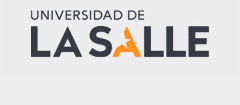Title
Tissue and Vascular Responses in Hypertensive Retinopathy with Monoclonal Antibodies as Antiangiogenic Therapy
Resumen
Objetivo: identificar el uso oftálmico de anticuerpos monoclonales en retinopatía hipertensiva y su efecto sobre la agudeza visual (AV), angiogénesis vascular y cambios en el fondo de ojo de pacientes hipertensos. Materiales y métodos: se realizó una revisión de literatura en las bases de datos Pubmed, Medline, Embasi, Lilacs, The Cochrane Controlled Trials Register, Hinari, Micromedex y Science Direct, mediante los términos MESH Monoclonal antibody and hypertensive retinopathy, Bevacizumab hypertensive retinopathy, monoclonal antibody therapy hypertensive retinopathy y Pegaptanib and hypertensive retinopathy, limitado a los años 2000 a 2012. Se encontraron 2345 estudios relacionados con el tema, de los cuales fueron seleccionados los que estuvieran escritos en inglés, francés, portugués y español, así como los relacionados con eficacia en el tratamiento de retinopatía hipertensiva o cambios angiogénicos en retinopatía diabética. La calidad de la evidencia científica fue clasificada a través de la metodología de Oxford. Se realizó un análisis descriptivo de las variables de estudio relacionadas con las respuestas en tejidos. Resultados: los anticuerpos monoclonales intervienen en el control del VEGF disminuyendo el riesgo de hemorragias retinales y reduciendo el espesor retinal. Anticuerpos como el bevacizumab muestran un 95 % en eficacia para la mejoría en AV (ETDRS 3 Líneas D.E. 2,15), mientras que el ranibizumab y el pegaptanib tienen 86 % en mejoría de Av (p < 0,05). La triamcinolona muestra mejoría en fuga vascular y edema macular en retinopatía hipertensiva asociada a diabetes, sin diferencias significativas entre grupos (p = 0,03).
Palabras clave
retinopatía hipertensiva, ranibizumab, pegaptamib, bevacizumab, angiogénesis
Abstract
Objective to identify the ophthalmic use of monoclonal antibodies in hypertensive retinopathy and their effect on visual acuity (VA), vascular angiogenesis and changes in the ocular fundus of hypertensive patients. Materials and methods Literature was reviewed in the Pubmed, Medline, Embasi, Lilacs, The Cochrane Controlled Trials Register, Hinari, Micromedex and Science Direct databases, through the MESH terms monoclonal antibody and hypertensive retinopathy, bevacizumab hypertensive retinopathy, monoclonal antibody therapy hypertensive retinopathy and pegaptanib and hypertensive retinopathy, limited to years 2000 to 2012. Two thousand three hundred and forty-five (2345) studies were found related to the topic, among which those written in English, French, Portuguese and Spanish were selected, as well as those associated with efficacy in the treatment of hypertensive retinopathy and angiogenic changes in diabetic retinopathy. The quality of the scientific evidence was classified through the Oxford methodology. A descriptive analysis of the study variables related to tissue responses was conducted. Monoclonal antibodies are involved in the control of VEGF, which decrease the risk of retinal hemorrhages, reducing retinal thickness. Antibodies such as bevacizumab show 95% effectiveness for improvement in VA (ETDRS 3 Lines D.E. 2.15) while ranibizumab and pegaptanib have 86% in VA improvement (p <0.05). Triamcinolone shows improvement in vascular leakage and macular edema in hypertensive retinopathy associated with diabetes, without any significant differences between groups (p=0.03).
Keywords
Hypertensive retinopathy, ranibizumab, pegaptamib, bevacizumab, angiogenesis
Digital Object Identifier (DOI)
https://doi.org/10.19052/sv.2370
Fecha de recepción
22 de julio de 2013
Fecha de aceptación
3 de octubre de 2013
Fecha de publicación
January 2013
Licencia Creative Commons

This work is licensed under a Creative Commons Attribution-Noncommercial-No Derivative Works 4.0 License.
Tipo de documento
Artículo de revisión
Editorial
Universidad de La Salle. Ediciones Unisalle
Citación recomendada
Garzón Parra SJ, Bonilla Hernández AM, Pulido Ladino AF y Lafosse E. Respuestas tisulares y vasculares en retinopatía hipertensiva con anticuerpos monoclonales como terapia antiangiogénica. Cienc Tecnol Salud Vis Ocul. 2013;(2): 79-96. doi: https://doi.org/10.19052/sv.2370
Included in
Eye Diseases Commons, Optometry Commons, Other Analytical, Diagnostic and Therapeutic Techniques and Equipment Commons, Vision Science Commons



